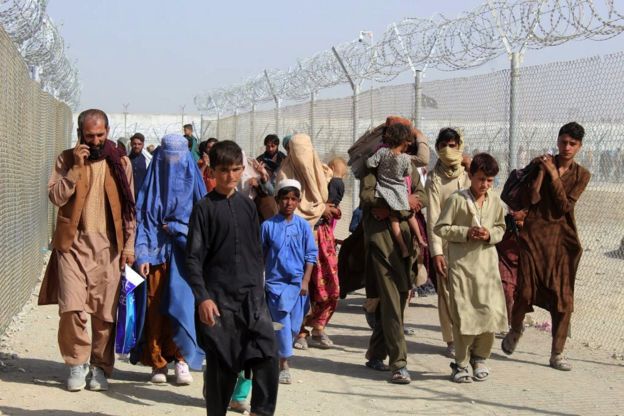On Tuesday March 14, the UN refugee Agency, UNHCR, and humanitarian partners launched a response plan to support 7.9 million people: 5.2 million Afghans – including refugees, as well as 2.7 million of their local host communities, across the region.
The Regional Refugee Response Plan for the Afghanistan Situation 2023 seeks 613 million US dollars in funding, to support Afghans who are sheltering in five neighboring countries – Iran, Pakistan, Tajikistan, Turkmenistan and Uzbekistan.
These countries are host to some 8.2 million Afghans, including over 2 million registered refugees. Many have been hosted in the region for decades, mostly in Iran and Pakistan. The two countries – with others, have generously accommodated Afghans in many of their public services at great cost, while an estimated 1.6 million have arrived in the region since 2021.
Over 70% of those in need of support are women and children.
While this response plan aims to provide support for Afghans displaced outside the country and the public infrastructure that serves them, a separate UN-wide plan has also been launched to respond to humanitarian needs inside Afghanistan. That plan seeks 4.62 billion US dollars to support some 23.7 million Afghans during 2023.
Afghanistan is one of the world’s largest and most severe humanitarian crises. A record 28.3 million people – some two-thirds of the population, including more than 11.6 million women and girls – require humanitarian and protection assistance. Humanitarian needs have been further exacerbated by recent restrictions on women including the inability of female Afghan NGO staff to work.
The UN and its partners are appealing to the international community to not shut the door on the people of Afghanistan. The international community cannot afford to neglect the Afghan people.
Humanitarian partners remain on the ground, and they are delivering assistance and protection both inside Afghanistan and in the region, despite the challenges.
Millions of Afghans are looking to the international community for support, and to their country’s interim leaders for peace, security, and opportunity.
Financial support remains critical to scale up to stave off wide-spread hunger, disease, malnutrition and ultimately death by supporting the joint humanitarian plans being launched.
A similar funding appeal for 2022 was only 52 per cent funded, with USD 321 million received of USD 623 million requirements.
Despite the funding crunch, UNHCR and partners were able to support millions of Afghans and their hosts in the neighboring countries. Vital humanitarian work resulted in further access to healthcare, primary and secondary education, financial assistance and improvements in water supply systems.
More than 10,000 Afghan refugees are currently living in Tajikistan
According to official data from the Tajik authorities, more than 10,000 Afghan refugees are currently living in Tajikistan; most of them have fled to Tajikistan in different years fearing reprisal from the Taliban Movement.
The vast majority of Afghan refugees staying in Tajikistan say they don't make long-term plans in Tajikistan; for them, Tajikistan is a transit country on the way to third countries and they are trying to go from here to Canada or European countries.
Over the past year, about 4,000 Afghan refugees have moved from Tajikistan to Canada.
In accordance with Article 33 (Prohibition of expulsion or return) of the UN refugee Convention, no Contracting State shall expel or return ('refouler’) a refugee in any manner whatsoever to the frontiers of territories where his life or freedom would be threatened on account of his race, religion, nationality, membership of a particular social group or political opinion.
Meanwhile, some sources say some Afghan refugees were deported from Tajikistan in August last year. Security officers reportedly brought the refugees to the border with Afghanistan and deported them from the country. According to the sources, some Afghan refugees were summoned to local security departments for identity check and after that they were taken to the border and transported to Afghanistan.
The deportations come despite longstanding calls by the UN body to halt the expulsions of Afghan nationals from Tajikistan and to offer them protection and give them access to a fair asylum process.
In an August 25 statement, the UNHCR raised "grave concerns over the continued detention and deportations of Afghan refugees in Tajikistan, warning once again that forcing people fleeing persecution back to their country against their will is illegal and puts lives at risk."
"Tajikistan must stop detaining and deporting refugees, an action that clearly puts lives at risk," said Elizabeth Tan, UNHCR's director of international protection. "Forced return of refugees is against the law and runs contrary to the principle of non-refoulement, a cornerstone of international refugee law."




